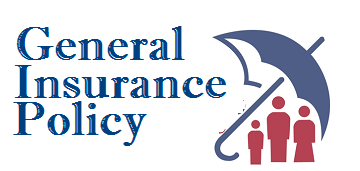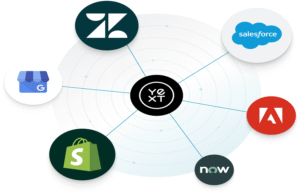Essential Tips for Choosing the Right Truck Insurance Plan
4 min read
Whether you’re an owner-operator or managing a fleet, truck insurance or commercial truck insurance is a critical investment that protects your business, your assets, and your livelihood.
With so many policies, providers, and options on the market, selecting the right truck insurance plan can feel overwhelming. To help you make an informed decision, we’ve compiled this guide featuring essential tips to consider before locking in your policy.
1. Understand the Types of Truck Insurance Available
Before choosing a plan, it’s important to familiarise yourself with the different types of truck insurance available in Australia. The right cover for you will depend on your operations, the size and type of your vehicle(s), and how much risk you’re willing to bear.
Some common types include:
- Comprehensive Insurance: Covers damage to your own truck as well as third-party property and injury.
- Third-Party Property Insurance: Covers damage to someone else’s vehicle or property but not your own.
- Third-Party Fire and Theft: Includes third-party cover plus protection if your truck is stolen or damaged by fire.
- Marine Cargo Insurance: Covers goods while in transit.
- Public Liability Insurance: Protects you if your truck causes injury or damage to another person or property.
If you carry dangerous goods or travel interstate frequently, you may also require specialised cover. Always check the fine print for exclusions and limitations.
2. Assess Your Specific Business Needs
Every trucking business is different. A single-rig courier operator will have different needs compared to a multi-vehicle freight company. Take stock of your business activities and ask yourself:
- Do you own one truck or a fleet?
- What kind of goods are you transporting?
- Do you cross state borders regularly?
- Do you need insurance for trailers, tools or cargo?
- Do your contracts require minimum levels of public liability?
Once you understand your business needs, you can begin narrowing down the types of policies that suit your operation.
3. Compare Policies from Multiple Providers
Don’t make the mistake of going with the first insurance provider you find. Comparing quotes from multiple insurers ensures you find the best value for money without compromising on essential cover.
When comparing policies, consider:
- Premium costs and payment frequency
- Excess amounts
- What’s included and excluded in the policy
- Claims processes and turnaround times
- Customer reviews and reputation
It may also be worth working with an insurance broker who specialises in transport and logistics. They can help source competitive policies and ensure you’re not under- or over-insured.
4. Check for Customisation and Add-Ons
Many truck insurance plans allow for customisation through optional extras. This is useful if your business has specific needs beyond a standard policy.
Popular add-ons include:
- Windscreen cover
- Downtime or loss of income cover
- Trailer in control cover
- Hire vehicle replacement
- Load theft or damage cover
Adding these options may slightly increase your premium, but they can provide vital support in the event of an incident.
5. Understand Your Legal Obligations
At a minimum, you must have Compulsory Third Party (CTP) Insurance, which covers injury to other people if you’re involved in an accident. This is included in your truck’s registration in most states.
Beyond CTP, you may be legally required to have public liability insurance, especially if your contracts stipulate it or you operate on client premises. Make sure you meet both state-based legal requirements and any industry-specific regulations relevant to your business.
6. Consider Excess vs Premium Balance
Generally, a higher excess means a lower premium, and vice versa. While it may be tempting to reduce your monthly costs by choosing a high excess, think carefully about what you could realistically afford to pay if something goes wrong.
7. Review the Claims Process
When disaster strikes, a smooth and efficient claims process can make all the difference. Before choosing a policy, research how the insurer handles claims.
Questions to ask:
- Is their claims team available 24/7?
- How long do they typically take to process a claim?
- What documents or evidence are required?
- Are claims settled fairly and transparently?
Reading online reviews or asking for referrals from other truck operators can give you insight into the real-world experience with an insurer’s claims process.
8. Revisit and Update Your Policy Regularly
It’s important to review your policy at least once a year to ensure it still meets your needs.
Factors that might prompt a policy update include:
- Purchasing new vehicles
- Hiring more drivers
- Expanding into new regions
- Taking on new types of cargo
- Changing business structure
Failing to update your insurance could leave you underinsured—or paying for cover you no longer need.
9. Don’t Underestimate the Importance of Driver History
Insurance providers often assess the risk level of drivers as part of the underwriting process. Drivers with clean records, heavy vehicle licences, and extensive experience may qualify for lower premiums. On the other hand, if your team has a history of traffic offences or accidents, you could see your costs rise.
Some insurers may even offer discounts or incentives for companies that provide driver safety training or implement fleet management systems. Keeping your drivers well-trained and informed is a smart business and insurance decision.
10. Seek Professional Advice When Needed
Truck insurance is complex, and getting it wrong can be costly. If you’re unsure what type of cover you need or how to compare policies effectively, it’s worth speaking to an expert.
Transport insurance brokers or advisers can help tailor a plan that suits your specific risks, budget, and business goals. They also advocate for you during the claims process, giving you peace of mind that you’re not going it alone.
Final Thoughts
Choosing the right truck insurance plan isn’t just about ticking a box—it’s about safeguarding your business, your team, and your financial future. By understanding your needs, comparing providers, and seeking professional advice when needed, you can secure comprehensive and cost-effective cover that keeps your wheels—and your business—moving.







